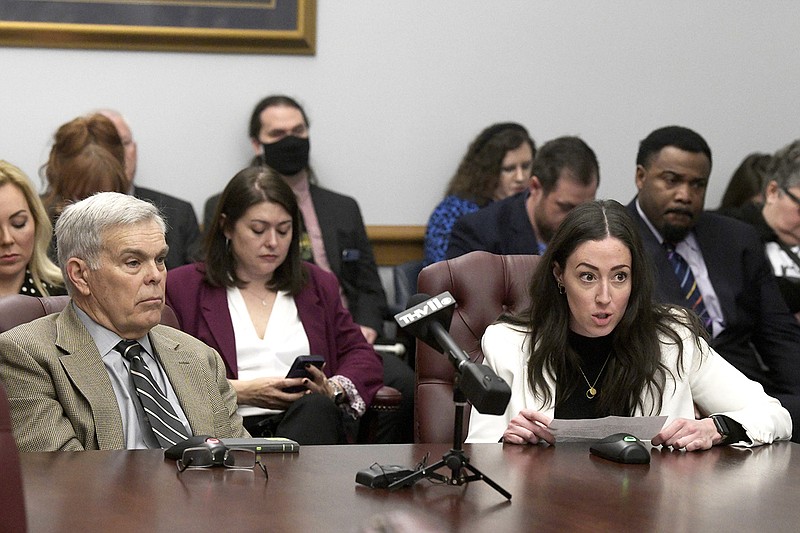The Arkansas Senate Education Committee advanced a bill Wednesday to restrict transgender people from using the bathroom of their choice at public schools.
House Bill 1156, by Rep. Mary Bentley, R-Perryville, would require public schools and open enrollment public charter schools to restrict people from using a restroom that does not correspond with the sex listed on their birth certificate.
The bill applies to places at schools where people "may be in various stages of undress in the presence of other individuals." The bill would apply to multiple-occupancy restrooms, locker rooms, changing rooms and shower rooms.
The Senate Education Committee approved the bill on a voice vote, with Democrats Greg Leding of Fayetteville and Linda Chesterfield of Little Rock audibly voting no. The House passed the bill Feb. 1.
Bentley said she filed the bill after being approached by two members of the Conway School Board who faced pushback after enacting a similar policy in October. Bentley said she modeled the bill after the bathroom policy in Conway, hoping to shield school districts from lawsuits if they enact similar rules.
"It very simply states that girls will go to the girls' bathrooms and boys will go to the boys' bathroom," Bentley said.
The bill also would require public schools to provide "a reasonable accommodation to an individual who is unwilling or unable to use a multiple occupancy restrooms or changing area designated for the individual's sex."
Students traveling on school-sponsored overnight trips will be barred from sharing "sleeping quarters with a member of the opposite sex" unless it is with an immediate family member, according to the bill.
Schools also would be prohibited from adopting a policy for bathrooms contrary to the one outlined in the bill. Superintendents, principals and teachers could be subject to a minimum fine of $1,000 and possible further discipline from the Professional Licensure Standards Board for not complying with the law.
Leding asked how school officials will enforce the policy, saying it will be "much more disruptive than just allowing the situation to exist as is."
If passed, the bill will likely be challenged in court.
Bentley cited a decision from the 11th U.S. Circuit Court of Appeals that upheld a similar law in Florida. Sarah Everett, policy director at the American Civil Liberties Union of Arkansas, said the legality of the bill was not clear, with the 4th and 7th U.S. Circuit Court of Appeals striking down similar bathroom policies.
"This is far from settled," Everett said.
Parents of transgender students and activists pushed back against the bill, calling it a discriminatory attack on a vulnerable community in the state.
"This bill directly discriminates against trans, intersex and non-binary students and violates in the most intimate way the privacy of all children," said Alison Guthrie, a student and activist who spoke against the bill.
Sen. Breanne Davis, R-Russellville, said the bill was not about targeting trans children but instead giving privacy to students.
"If we are allowing kids to change multiple times their gender and pronouns throughout the school year, and then allow them in the locker room with my middle school child, I have a problem with that," Davis said. "And this is about protecting every kid, including transgender children, in our public schools."
